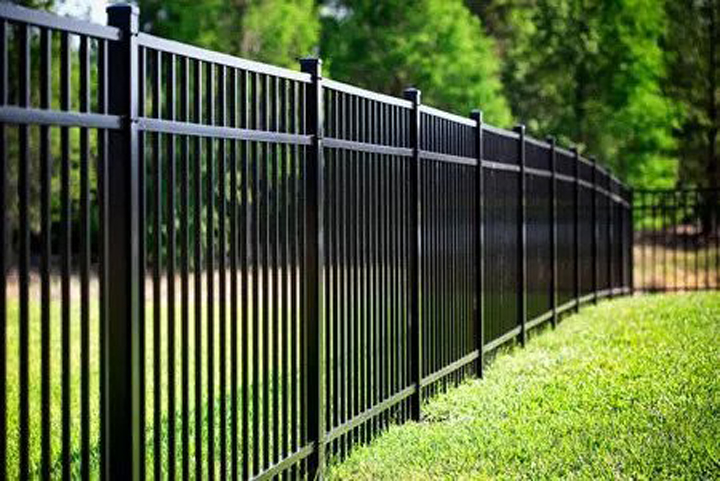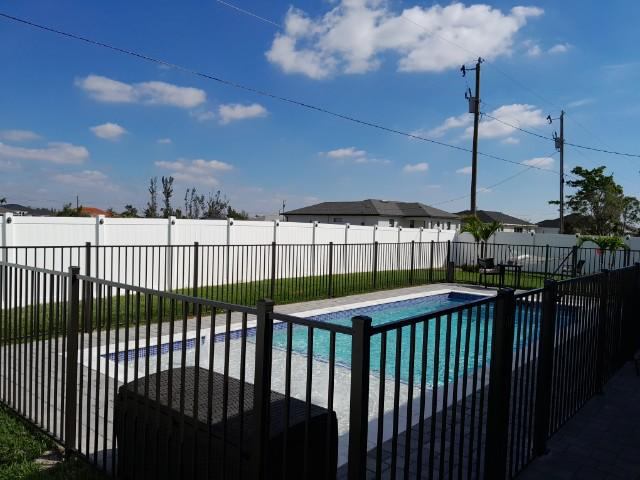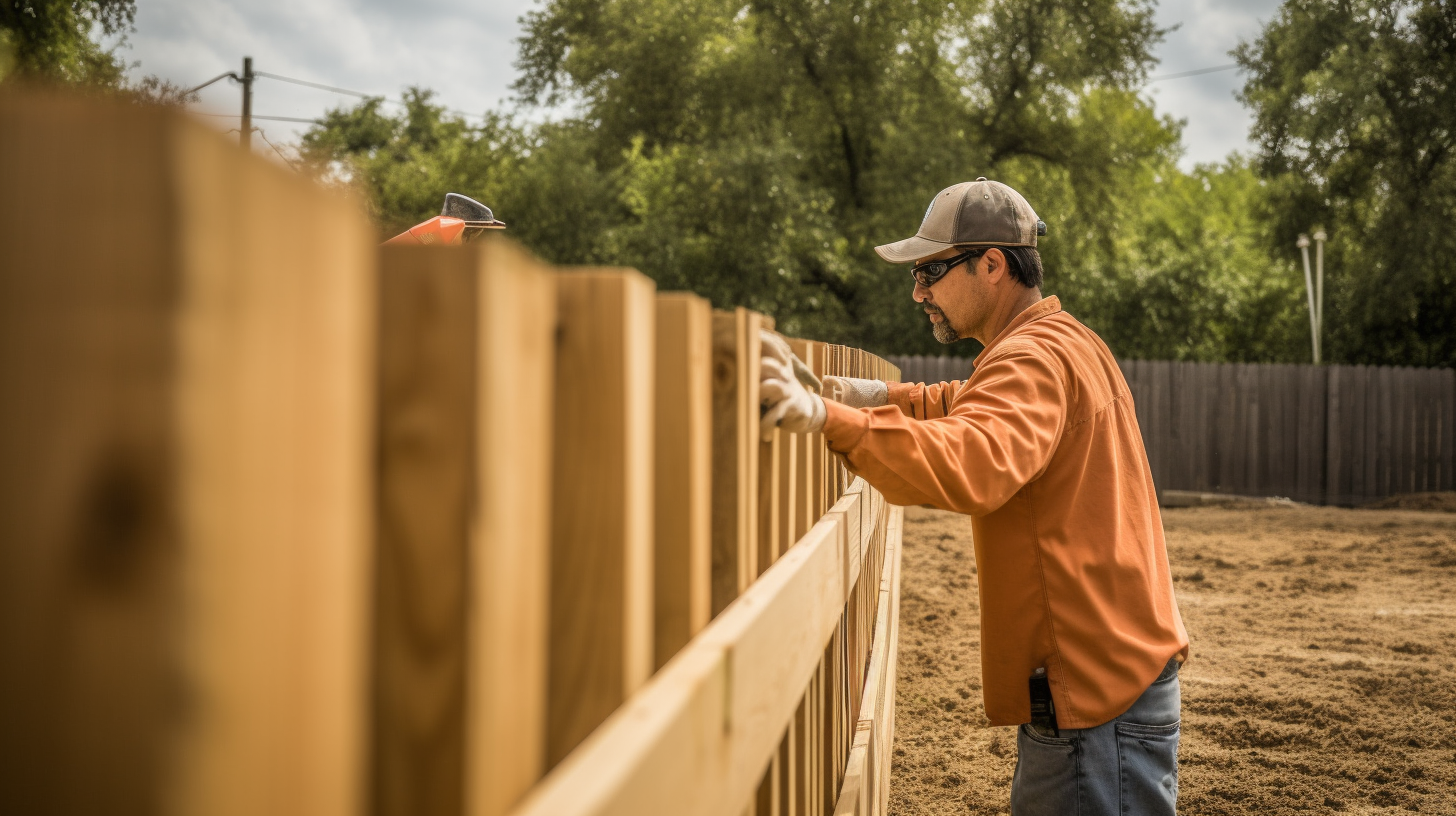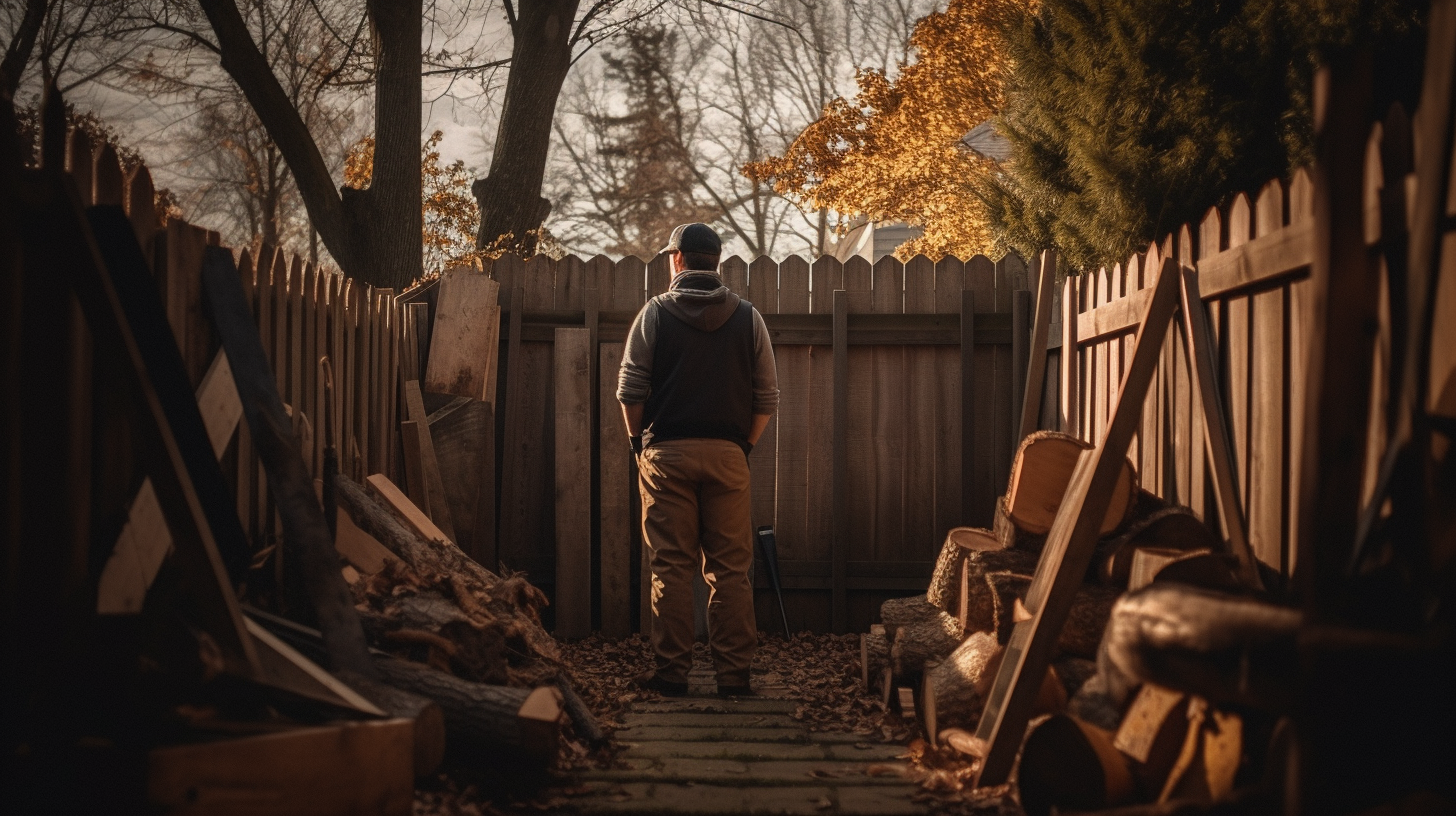If you're thinking about installing a new fence or replacing an existing one, you might…

Who Should Replace Your Fence? Find the Best Fence Installer Near You
Every homeowner knows the undeniable value of a quality fence. They offer protection, and privacy, and enhance the aesthetics of your property. But when that reliable boundary starts to give up the ghost, do you know who should step in? Just as a doctor would mend your bones, or a mechanic restore your car to its former glory, so too does a seasoned professional need to breathe life back into your tired fence. A masterful balance between artistry and craftsmanship is required – welcome to the world of professional fence installation. In this blog post, we’ll guide you through selecting the best fence installer near you; because even a stalwart barrier like your fence deserves an expert touch! So why not discover more about local fencing companies and their incredible work? It’s time to turn your weary wooden panels into an enviable property perimeter once again.
The decision to replace your fence yourself or hire a professional depends on your skill level and the complexity of the project. While replacing a fence may seem like a DIY project, it can quickly become complicated and difficult without the proper tools and experience. Hiring a professional fence installer has many benefits, including saving time and ensuring that your fence is installed correctly.
Furthermore, professionals have the required skills, knowledge, equipment, and experience necessary to complete the job on time efficiently, safely, and with high-quality results that last for years. It’s okay to DIY if you have previous experience with fencing projects; however, if you’re not confident in your skills, we recommend hiring a local fence company to ensure your peace of mind.
Deciding Between DIY and Professional Fence Installation
When it comes to replacing your fence, you may be torn between doing it yourself or hiring a professional. There are several factors to consider when making your decision, including cost, time, and skill level.
If you are handy with tools, have some experience with DIY projects, or are confident in your ability to learn new skills, DIY fence installation might be a good option for you. You will save money on labor costs, and you can take pride in the fact that you did the work yourself.
However, if you don’t have any experience with fence installation or have limited tools available, professional installation may be your best bet. An experienced fence installer will have the necessary tools and expertise to complete the job efficiently and correctly.
Additionally, hiring a professional can save you time and hassle. Installing a fence takes time and effort that many homeowners simply don’t have. A contractor can get the work done quickly while you focus on other things.
Think of it this way: if you needed major dental work done, would you try to do it yourself? Of course not – you would seek the services of a trained professional. The same can be said for fence installation – unless you’re experienced in this area, it’s often more cost-effective to hire a professional.
Now that we’ve discussed the pros and cons of DIY versus professional fence installation, let’s dive into understanding the skill level required for DIY fence repair.
- According to HomeAdvisor, homeowners spend an average of $2,800 to install a wood fence.
- As per Angie’s List, the typical range for hiring professional fence installers can be between $1,600 and $4,000, varying with fence type, material, and labor charges in different states.
- Based on data from Thumbtack, on average, 80% of customers reported satisfaction with their professional fence installation experience indicating the value of hiring professionals for such tasks.
Understanding the Skill Level for DIY Fence Repair
Fence repair is another area where homeowners often face a dilemma: should they tackle the project themselves or hire a professional? Again, there are several factors to consider before making your decision.
Some minor repairs are simple enough for even novice do-it-yourselfers to handle. If you need to replace a few fence pickets or repair a small section of damaged fencing, you may be able to do it yourself with some basic tools and materials.
On the other hand, more extensive repairs such as replacing fence posts or repairing large sections of the fence may require specialized equipment and knowledge. This is where a professional fence repair company comes in.
It’s important to consider the potential consequences of DIY fence repair. If the work isn’t done correctly, it can end up being more costly than if you had hired a professional in the first place. A poorly repaired fence may not only look unsightly, but it could also pose safety hazards.
Think about it this way: repairing your fence is like repairing your car. While some maintenance tasks are simple enough for an amateur to handle, complex repairs should be left to professionals who have the necessary expertise and equipment.
Now that we’ve discussed the skill level required for DIY fence repair and installation let’s move on to finding the best fence installer near you and understanding fencing options and their cost implications.

Professional Fence Installers vs DIY Costs
When considering fence installation or repair, homeowners may face the dilemma of choosing between professional fence installers and DIY options. While the latter may seem like a cost-effective solution, there are several factors that can make it more expensive in the long run.
For instance, a homeowner with basic carpentry skills may attempt to install a fence on their own. However, they may encounter unexpected challenges such as uneven terrain or underground obstacles that require specialized tools or expertise. Consequently, this can lead to project delays and errors that could be costly to fix.
On the other hand, professional fence installers have the necessary experience and equipment to handle such issues efficiently and effectively. They can also offer valuable advice on fencing materials, designs, and maintenance practices that best suit the homeowner’s needs and budget.
Some homeowners may argue that DIY fence installation is cheaper than hiring a professional installer. While this may be true for simple fencing projects, complex installations such as those involving multiple gates or custom designs require advanced skills and experience that most DIY enthusiasts lack. Moreover, mistakes made during DIY installations can have costly consequences such as damage to property or injury to people or pets.
Comparing professional fence installation to medical treatment can help illustrate its importance. Just as one would seek medical attention from a qualified doctor for an ailment rather than attempting self-treatment, it is wise to entrust fence installation and repair to professionals who have the required training and resources.
With this in mind, let us explore how homeowners can find the best fence installer near them.
- When considering fence installation or repair, homeowners should seriously consider hiring a professional fence installer instead of attempting a DIY project. Although the DIY option may seem more cost-effective in the short-term, there are several factors that can make it more expensive in the long run, including unexpected challenges, project delays and errors that could be costly to fix, and lack of specialized tools or expertise. Professional fence installers have the necessary experience and equipment to handle such issues efficiently and effectively. Moreover, complex installations and custom designs require advanced skills and experience that most DIY enthusiasts lack. Therefore, it is wise to entrust fence installation and repair to professionals who have the required training and resources.
Finding the Best Fence Installer Near You
Hiring a reputable fence installer is crucial for a successful fencing project. Choosing an inexperienced or unqualified contractor can result in shoddy workmanship, substandard materials, project delays, and other headaches. Below are some tips on how to find the best fence installer near you.
Start by checking online reviews of fence installers in your area. Websites such as Yelp, Google My Business, and Angie’s List are excellent resources for finding feedback from past clients about their experiences with different contractors. Look for installers with high ratings and positive reviews, as this is a good indication of their professionalism and quality of work.
Another factor to consider when looking for a fence installer is licensing and insurance. Ensure that the contractor you choose is licensed in your state and carries liability insurance. This protects both you and the contractor in case of accidents or damages that may occur during the project.
While hiring a local handyman or general contractor may be cheaper than a specialized fence installer, it is vital to remember that fencing is a specialized field that requires expertise in areas such as grading, drainage, and slope analysis. A certified fence installer can provide assurances that the job will be done correctly, within budget, and within the agreed timeframe.
Choosing an inexperienced contractor for your fencing project is akin to treating a serious medical condition with over-the-counter medication instead of seeking professional medical care. DIY or unlicensed contractors may offer cheaper services, but at what cost?
Understanding Fencing Options and Cost Implications
Installing a new fence can be a big investment for homeowners, and choosing the right material can have long-lasting effects on the value of your property. As you begin to research your options, understanding the different fencing materials and their cost implications is essential.
First, it’s important to consider the purpose of your fence. If privacy is your top priority, a solid wood or vinyl fence might be the best option. These materials block visibility from the outside, giving you complete seclusion in your outdoor space. If security is your main concern, then chain-link fencing might be an appealing option. This type of fence offers a sturdy barrier that can’t easily be climbed or cut through.
Of course, appearance also plays a role in the decision-making process. If you’re looking for an option that enhances your home’s aesthetic appeal, ornamental metal fencing might be an excellent choice. These fences come in an array of styles and designs, meaning that you can find one that perfectly complements the look of your property.
For instance, a homeowner who lived along the coast in California wanted to install a fence that could withstand the salty air and harsh winds. After researching options with local fence companies, they decided wrought iron with powder coating would be best for giving their home both style and durability.
Another factor to keep in mind when choosing fencing material is maintenance requirements. Natural wood fences require regular staining or sealing to protect against weathering and insects; otherwise, they will start to deteriorate quickly. On the other hand, vinyl fences never need painting or repainting – they only need occasional cleaning to maintain their appearance over time.
While natural wood choices may seem like affordable options at first glance, after accounting for regular maintenance and upkeep costs over time (expected at least every 2-3 years), they tend to even out with the cost of initial investment that you might spend on a more durable, lower maintenance material such as vinyl.
When considering fencing options and calculating the total cost, remember to account for not just the upfront installation expenses but also any ongoing costs such as maintenance.
Compare Different Fencing Materials and Their Prices
Now that you have a better understanding of what fencing options are available, it’s time to compare their prices. Keep in mind that different materials will have different installation requirements and lots of factors could potentially influence overall cost estimates, including geographic location, slope of land, and fence height.
Here is a breakdown of some of the most popular fencing materials and their average costs:
– Vinyl: $20 – $40 per linear foot
– Aluminum: $20 – $30 per linear foot
– Wood: $10 – $30 per linear foot
– Chain link: $8 – $18 per linear foot
For example, a homeowner in California looking to install a 100-foot tall fence would multiply $25/foot (average cost for Midwestern region) by 100 feet, making the total cost around $2,500-$4,000.
Chain link is typically the cheapest option but doesn’t offer much in terms of privacy or aesthetic appeal. On the other hand, wood fences may be more affordable than vinyl or aluminum but will require regular maintenance and could be subject to rot and decay over time.
It’s essential to weigh your priorities when choosing between different materials. For instance, if privacy isn’t important but you want to enhance your property’s appearance with ornamental design elements, wrought iron fencing may be worth splurging on. If affordability is your primary concern, then chain-link might be your best bet.
But regardless of what option you choose, always make sure to read reviews on not only quality of installation from a particular company but also longevity and maintenance of fencing materials themselves.
Finding the right fencing material can take some time and research, but with the right information, you can make an informed decision that meets your individual needs.



